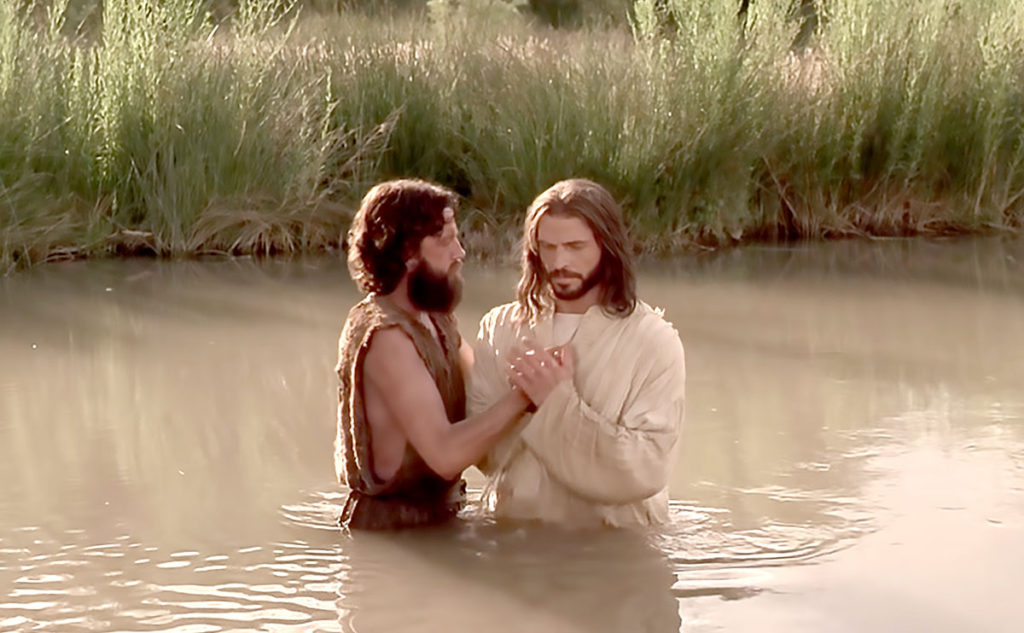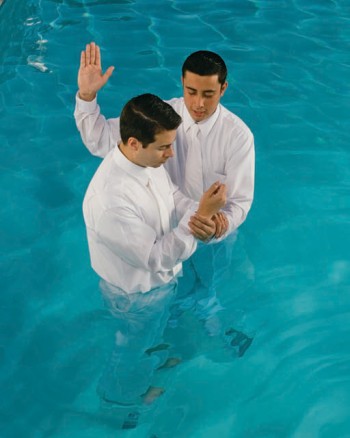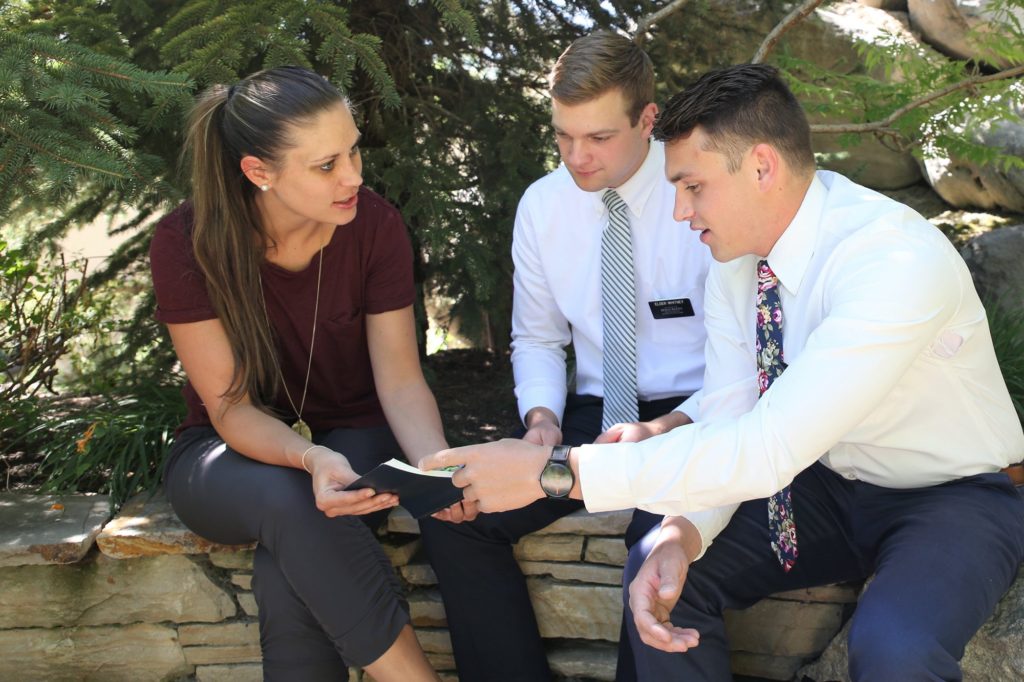To accompany your Come Follow Me study for March18-24.
In addition to reading 2 Nephi 31-33 this week, you may enjoy watching these related videos:
You would also enjoy reading the following chapter from the Book of Mormon Institute Student Manual:
If you would like a Kahoot game related to this material which you could use for personal study or use with your family or your class, click here: https://create.kahoot.it/share/2-nephi-31-33/7f8706b8-8172-4d73-89dd-eab01794b168. To use it with a group, after clicking on this link, you will need to log into Kahoot, creating a free account if you have not done so previously, then click on the blue “Start” button. Some of the Kahoot questions may presuppose that the player has read through the suggested answers to the following Points to Ponder and at least has browsed the Institute student manual as well.
Points to Ponder in 2 Nephi 31-33
1. (2 Ne. 31:3.) Why does the gospel seem so complicated to some people, when Nephi said the Lord works among the children of men according to “plainness”? (2 Ne. 31:3.)

2. (2 Ne. 31:3.) What does it mean in the same verse when it says that the Lord “speaketh unto men according to their language”? What does this have to do with why there were some grammatical errors in the first edition of the Book of Mormon?
3. (2 Ne. 31:5-10.) Most of the time when people are asked why Jesus was baptized, they give a poor answer, such as “to fulfill all righteousness” (which doesn’t really mean anything) or at best a partial answer, such as “to set an example for us.” What is the really the principal reason Jesus needed to be baptized?

4. ( 2 Ne. 31:2-21.) Nephi indicates in verse 2 that he is going to talk about the “doctrine of Christ.” In v. 21 he says that what he had just taught them was “the doctrine of Christ.” What are the five major elements you can find in between those verses that Nephi seems to include in what he calls the “doctrine of Christ”?
5. (31:12.) How could Jesus’ counsel to “follow me and do the things which ye have seen me do” help you in the following situations?
a. Deciding what to do on a date? (When we have no record of His dating.)

b. Deciding on what to study in college? (When He never went to college.)

c. Planning a weekly schedule? (We have no record of His carrying either a printed or an electronic agenda.)

d. Deciding how to approach an institute class? (Did He ever take one?)

6. Complete the sentence: “2 Nephi 31:15 is one of only four _____________________________________.”

7. (31:16, 20.) How does the phrase “endure to the end” make you feel? How could you help someone who thought that sounded like a lot of drudgery and unpleasantness? And doesn’t 31:20 sound pretty idealistic and at best like a lot of work? Explain.

8. (31:17.) Does remission of sins precede or follow baptism? See also 3 Ne. 7:25; Moroni 6:4; D&C 20:37. Why the seeming contradictions?

9. (31:18‑19.) What is the significance of the change in wording from “straight” to “strait” in the English version in 1981? How much individuality can there be among Latter‑day Saints without their getting off this “strait” path?

10. (32:5.) It says here that the Holy Ghost will show us all things we should do, but in actual practice most Latter‑day Saints find most decisions left up to their own discretion without divine intervention. Are they living beneath their privileges, or doesn’t the scripture mean what it seems to say? Will the Holy Ghost really show us which brand of toothpaste to buy and what color of shirt or dress to wear on Friday?

11. (32:7.) Do you agree literally with Nephi that men “will not search knowledge, nor understand great knowledge, when it is given unto them in plainness, even as plain as word can be”? Can you illustrate what you think Nephi means?
12. Does 32:9 mean that prayer should precede every sacrament meeting talk, every ministering visit, and every administration to the sick? Can one pray too much? Explain.

13. If prayer time comes and one doesn’t feel very prayerful, which is the better option, and why? (2 Ne. 32.)
a. Go through the motions of prayer anyway, and risk being considered a hypocrite by the Lord.
b. Wait until the Spirit returns so you can pray with real intent.
14. (33:1.) Was Nephi’s weakness in writing, compared to his speaking ability, a personal characteristic, a characteristic Nephite trait, or a general principle applicable to mankind even today? Is there more spiritual power in the spoken word than in the written word? Why do you feel the way you do?

15. How would a missionary who really understood 33:1 act differently from one who did not?

16. (33:10-11.) Suppose a person at judgment day admits to having heard the missionary lessons and having read the Book of Mormon but honestly decided the gospel wasn’t true and decided to remain a Catholic. How will he be judged?
Possible Answers to Points to Ponder in 2 Nephi 31-33
1. 2 Ne. 31:3. Why does the gospel seem so complicated to some people, when Nephi said the Lord works among the children of men according to “plainness”? (2 Ne. 31:3.)
Perhaps some people try to make the gospel seem more complicated than it really is in order to appear more intelligent themselves. While the gospel in all its ramifications is so profound we’ll never understand all there is to know about the details in this life, in its basic principles it is so simple a child of eight years old can understand it sufficiently well to decide whether or not to dedicate his life to it.
2. 2 Ne. 31:3. What does it mean in the same verse when it says that the Lord “speaketh unto men according to their language”? What does this have to do with why there were some grammatical errors in the first edition of the Book of Mormon?
Typically, the Lord speaks through thoughts and ideas, allowing men to formulate the language themselves, as Joseph Smith to some extent seems to have been allowed to do in translating the Book of Mormon. When the Lord told the Three Witnesses that the book had been translated by the gift and power of God, He was attesting to the book’s doctrinal correctness, not to its English grammar.
3. (2 Ne. 31:5-10.) Most of the time when people are asked why Jesus was baptized, they give a poor answer, such as “to fulfill all righteousness” (which doesn’t really mean anything) or at best a partial answer, such as “to set an example for us.” What is the really the principal reason Jesus needed to be baptized?
“To fulfill all righteousness” is just another way of saying that Jesus needed to be baptized because he needed to be baptized. As pointed out in v. 7, Jesus needed as much as we do to make a covenant (like signing a contract) that in the future he would be obedient to God. Even those with perfect credit usually have to sign a contract promising to make future payments in order to take home a new car on credit. Although his past was perfect, Jesus had to make the covenant, through baptism, that in the future he would also fulfill every commandment of his Father.
4. 2 Ne. 31:2-21. Nephi indicates in verse 2 that he is going to talk about the “doctrine of Christ.” In v. 21 he says that what he had just taught them was “the doctrine of Christ.” What are the five major elements you can find in between those verses that Nephi seems to include in what he calls the “doctrine of Christ”?
V. 10 and 12 Faith, as seen in a willingness to follow Jesus, with real intent
V. 11 Repentance
V. 4-7 Baptism
V. 12-14 Gift of the Holy Ghost
V. 15-16, 19-20 Enduring to the end
5. 31:12. How could Jesus’ counsel to “follow me and do the things which ye have seen me do” help you in the following situations?
a. Deciding what to do on a date? (When we have no record of His dating.)
Can we not picture him dating in a kind, enthusiastic, loving, virtuous manner? If not, do we need to change our dating patterns?
b. Deciding on what to study in college? (When He never went to college.)
Would not Jesus focus on a field where He could serve and which would be worthy of His best efforts?
c. Planning a weekly schedule? (We have no record of His carrying either a printed nor an electronic agenda.)
Wouldn’t He include time for planning, meditating, studying, and recreating as well as for service?
d. Deciding how to approach an institute class? (Did He ever take one?)
Wouldn’t He try to give as much as He received and read and ponder the assigned material ahead of time?
6. Complete the sentence: “2 Nephi 31:15 is one of only four
references in all of scripture to the Father speaking personally and directly to mortal men after the time of the Fall.” The other three are at the baptism of Jesus, at the transfiguration, and at the First Vision of Joseph Smith.
7. 31:16, 20. How does the phrase “endure to the end” make you feel? How could you help someone who thought that sounded like a lot of drudgery and unpleasantness? And doesn’t 31:20 sound pretty idealistic and at best like a lot of work? Explain.
While endurance is critical, and sometimes can even be difficult, I’d prefer to think of the journey as largely thrilling, exciting, pleasant, and wonderful, rather than painful or unpleasant. Those who live rightly are happier in this life, not just in the hereafter.
8. 2 Ne. 31:17. Does remission of sins precede or follow baptism? See also 3 Ne. 7:25; Moroni 6:4; D&C 20:37. Why the seeming contradictions?
I think the reconciliation of these seemingly contradictory passages is to recognize that a tentative remission of sins needs to precede baptism, but that baptism somehow “locks in” this remission and makes it official or permanent.
9. 31:18‑19. What is the significance of the change in wording from “straight” to “strait” in the English version in 1981? How much individuality can there be among Latter‑day Saints without their getting off this “strait” path”?
“Straight” means that the path isn’t crooked. “Strait” means that it is narrow–e.g., the “Straits” of Magellan. The Lord’s path is usually spoken of as “strait,” meaning that His laws are strict and that there isn’t room for “just a little sin.” The Bible speaks of a “strait” path, not a “straight” one, and presumably before the 1981 edition of the Book of Mormon we had used the wrong homonym. I think, however, that the same general concept comes across even if we spell the word as “straight.” I do believe there is room for individuality even on a “strait” path. For example, different families might do quite different things on a given Monday night for family home evening, and all of them still be on the strait path. If they decided for reasons of laziness or rebellion not to have home evening at all, it would probably indicate they had strayed from the path.
10. 32:5. It says here that the Holy Ghost will show us all things we should do, but in actual practice most Latter‑day Saints find most decisions left up to their own discretion without divine intervention. Are they living beneath their privileges, or doesn’t the scripture mean what it seems to say? Will the Holy Ghost really show us which brand of toothpaste to buy and what color of shirt or dress to wear on Friday?
Two interpretations are possible here, which in the final analysis may be saying much the same thing. One interpretation would say that the Holy Ghost will show us all things we should do relating to our salvation, though it may be silent on more trivial matters. The other would say that the Holy Ghost functions much like the alternator light on your car. When it’s not on, it is essentially telling you that everything’s okay and you can proceed as you are. But if the light comes on, you know you have a problem with the car you need to have fixed. Similarly, the Holy Ghost gives us a lot of latitude to choose our own brand of toothpaste, for example, but if the brand we are about to buy has arsenic in it, the Holy Ghost may well step in and prompt us not to buy it.
11. 32:7. Do you agree literally with Nephi that men “will not search knowledge, nor understand great knowledge, when it is given unto them in plainness, even as plain as word can be”? Can you illustrate what you think Nephi means?
I believe this is unfortunately true of many who are presented with sufficient evidence that God lives and that the gospel is true, but who approach scripture reading and gospel study as if this was not a very high priority.
12. Does 32:9 mean that prayer should precede every sacrament meeting talk, every ministering visit, and every administration to the sick? Can one pray too much? Explain.
Yes, we ought to pray–at least informally before every significant new activity. Many of these prayers can be quiet prayers in the heart, rather than dropping to our knees several dozen times a day. Perhaps we can remember the major events facing us that day when we have our morning prayer and specifically ask for help in them at that time. I think it is true that most of us do not have a problem with praying too much. I do, however, remember a story about the pioneers approaching a river which they had to cross. One of the party, feeling the crossing would be a bit of a challenge, said, “Brother Brigham, let’s pray.” Brigham Young’s response was, “We prayed this morning. Let’s cross the river.”
13. If prayer time comes and one doesn’t feel very prayerful, which is the better option, and why? (2 Ne. 32.)
a. Go through the motions of prayer anyway, and risk being considered a hypocrite by the Lord.
b. Wait until the Spirit returns so you can pray with real intent.
“A” is probably the better option. Brigham Young once said that those who don’t pray until they feel like praying will do precious little praying in this life!
14. 33:1. Was Nephi’s weakness in writing, compared to his speaking ability, a personal characteristic, a characteristicl Nephite trait, or a general principle applicable to mankind even today? Is there more spiritual power in the spoken word than in the written word? Why do you feel the way you do?
I think in part he’s referring to the awkwardness of writing in “reformed Egyptian” rather than in the Hebrew he was more comfortable with. But I do think that there is often a special power in the spoken word, for example at General Conference, that doesn’t always come through as clearly or powerfully in the printed version of the same talk. On the other hand, I think we feel plenty of power in a good deal of the written word, such as the Book of Mormon. The spoken word enables us to hear the tone, volume, inflection, etc., of the speaker, but the written word gives us more time to ponder.
15. How would a missionary who really understood 33:1 act differently from one who did not?
He’d be less concerned about trying to produce logical “proofs” and more concerned about speaking and teaching with the Spirit of the Lord.
16. 33:10-11. Suppose a person at judgment day admits to having heard the missionary lessons and having read the Book of Mormon but honestly decided the gospel wasn’t true and decided to remain a Catholic. How will he be judged?
I question whether anyone can prayerfully read the entire Book of Mormon and hear the whole set of missionary lessons and “honestly” decide the gospel isn’t true–especially if he’s a good person at heart. As Nephi says, those who believe in Christ will believe in the Book of Mormon. They’ll recognize it as true. I do believe, however, that there are many who have not looked at the Book of Mormon or the Church carefully and who have tentatively rejected it because of prejudice and/or because of the poor job some of us have done in introducing it to them who will indeed have another chance, in this life or the next.
